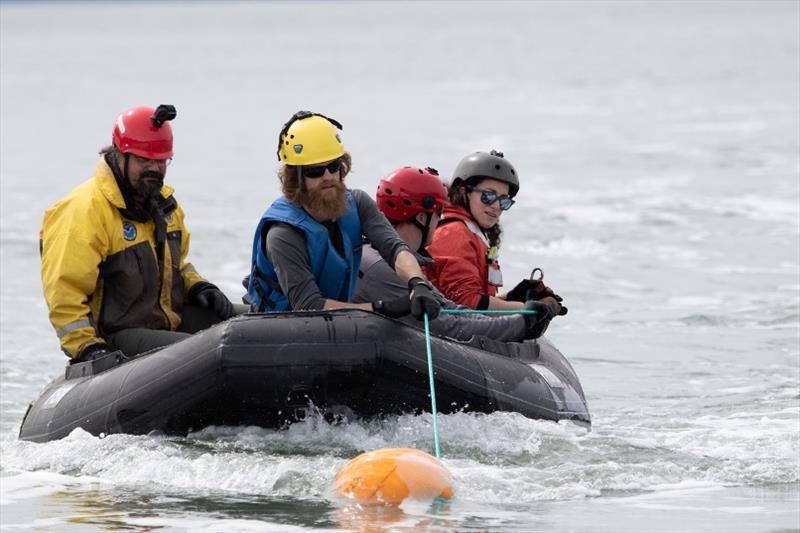
National report on large whale entanglements confirmed in the United States in 2018
by NOAA Fisheries 20 Jun 2020 17:16 UTC

National report on large whale entanglements confirmed in the United States in 2018 © NOAA Fisheries
NOAA Fisheries has released a National Report on Large Whale Entanglements Confirmed in the United States in 2018.
Many large whale populations are increasing in the United States, but entanglements in fishing gear or marine debris are a growing threat to the continued welfare and recovery of these species. Severe entanglements can kill or seriously injure large whales. Entanglements involving threatened or endangered species can have significant negative impacts to the population as a whole.
NOAA Fisheries coordinates the Marine Mammal Health and Stranding Response Program, which includes partners in the Large Whale Entanglement Response Network. They help us track and document as many of these incidents as possible. Entanglements represent a serious human-caused threat to large whales at the individual and population levels. Scientists and managers analyze entanglement data to determine:
- Rates and severity of entanglements
- Type of gear or debris causing the entanglement
- Injuries and impact to the animal
Managers use that information to evaluate existing conservation measures and implement new ones as warranted to reduce the threat of entanglements in the future.
There were 105 confirmed entanglement cases nationally in 2018. This was above the 11-year average (70.8 + 21.8) and more than 25 percent higher than the number of cases in 2017. Some of the entanglements involved North Atlantic right whales on the East Coast, which could impede recovery of that critically endangered species. The National Large Whale Entanglement Response Network responded to 37 of 92 cases involving entangled live whales and successfully removed entangling gear from 16 whales. This increased their chances of survival as well as collected important documentation.
NOAA Fisheries is extremely proud to work with our partners in the Large Whale Entanglement Response Network, which is comprised of highly skilled experts and trained response teams. NOAA Fisheries maintains regional entanglement reporting hotlines that allow reports of entangled whales to be relayed quickly to the appropriate responders.
Disentangling large whales is a dangerous activity. Members of the public should not attempt to disentangle whales themselves—they should call authorized professional responders instead. Professional responders have years of training, specialized knowledge and skills, and customized tools and equipment to ensure the safety of the animals and the response team.
In addition, authorized Network responders are typically more successful at removing entangling gear than untrained members of the public. This leads to better outcomes for the individual whale and helps us gain better information to reduce future entanglement threats and impacts. If you encounter an entangled large whale, please call your regional hotline.
Regional Entanglement Hotlines
- Atlantic and Gulf Coasts: (866) 755-6622
- California, Oregon, and Washington: (877) SOS-WHALe/(877) 767-9425
- Alaska: (877) 925-7773
- Hawaii: (888) 256-9840
NOAA Fisheries is actively monitoring and adjusting to the COVID-19 national health crisis. Ensuring the health and safety of our employees, partners, and broader fishing community during this crisis is a priority. We remain fully operational with much of our workforce teleworking. We will continue to fulfill our mission, maintaining our nation's seafood supply and protecting marine life. Our marine mammal and sea turtle stranding network partners are making operational decisions based on COVID-19 that may impact the ability to respond to strandings and entanglement incidents.